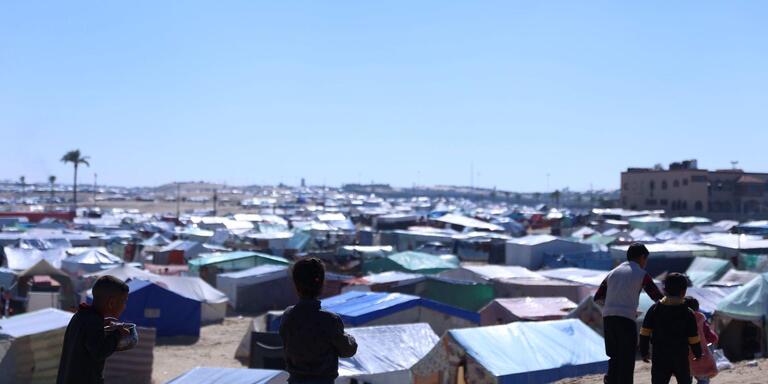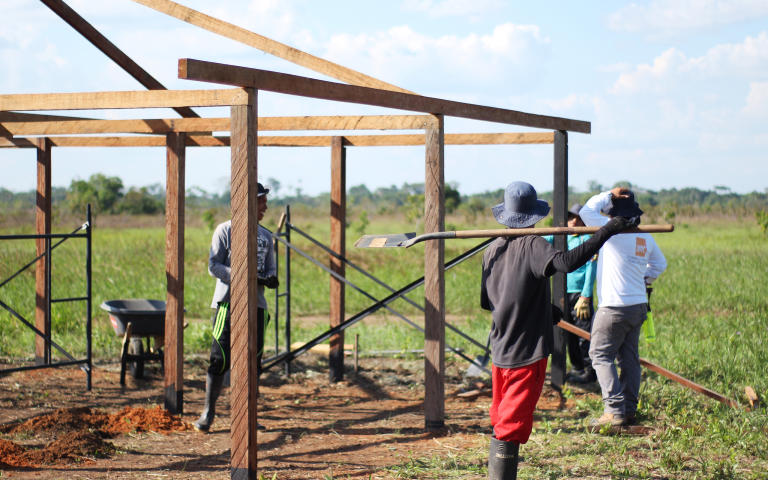
Legal and institutional frameworks, whether statutory, customary or religious, can either provoke or perpetuate displacement and discrimination or serve as instruments of protection and empowerment. People affected by displacement require assistance to understand, interpret and navigate these frameworks.
NRC’s ICLA programmes aim to enable people affected by displacement to claim and exercise their rights and to find lasting solutions. ICLA also aims to prevent displacement for those at risk. ICLA activities are implemented in accordance with international humanitarian protection standards and principles. They promote understanding and respect for the rights of affected people and the obligations of duty bearers under international law.
Our expertise in ICLA
Our ICLA activities support people to claim and exercise their rights through information, counselling, legal assistance, collaborative dispute resolution, capacity building and advocacy. ICLA programmes may engage in public interest cases, if this will lead to a direct positive effect for a greater number of individuals or create legal precedents that can generate positive structural changes.
ICLA may use international litigation mechanisms when domestic remedies have been exhausted or are ineffective. ICLA also advocates at all levels, including international bodies, to pursue the goal of promoting respect for the rights of people affected by displacement.
ICLA programmes observe local legal, cultural and social norms without compromising our commitment to promote and respect rights established by international law. This includes the use of judicial or administrative remedies, customary or religious mechanisms, collaborative dispute resolution methodologies, and transitional justice mechanisms.
As women and children may face particular obstacles in accessing their rights, we provide specific assistance to address these.
ICLA focuses on six thematic areas:
- housing, land and property (HLP) rights
- legal identity (LID), including obtaining the civil and identity documentation necessary to access rights and services
- immigration and refugee laws and procedures, including refugee status determination and legal residency
- government legal procedures and policies for registration of internally displaced people, when access to rights and services is dependent on such registration
- employment laws and procedures
- access to essential services


ICLA on the ground
Our ICLA teams work in over 30 countries around the world. Here are some examples of the difference they make:
DR CONGO | Making violent land disputes a thing of the past
Disputes over the use of land are at the heart of many violent conflicts in Kasaï-Central. From small-scale scuffles between neighbours over field boundaries, to large-scale clashes over which village can farm or exploit certain lands. NRC's legal assistance team in Kasaï-Central aims to find lasting solutions to land disputes such as these.
“After NRC’s workshop, we came up with an arrangement regarding the forests we were disputing. We agreed on how to divide the land and said that we would exploit the right side and they the left,” explains Alphonse.
LEBANON | Refugees with nothing left to lose
Syrian refugee children who are born in Lebanon but do not have complete birth certificates can face challenges in accessing basic services such as education and healthcare.
“We weren’t able to register their birth because at first we didn’t know how to, and then it turned out to be too expensive. This caused us a lot of stress and we lived with constant uncertainty,” Zayno explains.
NRC’s legal team supported Zayno to obtain birth certificates for his youngest daughter and grandson as well as to register the marriage of his daughter.
NIGERIA AND CAMEROON | The power of an identity
NRC set up a system where we use mobile vans to provide hundreds of residents in Mubi with ID cards at their doorstep. With mobile ID vans and information sessions, there is hope that more people who have been forced to flee will have easier access to their rights.
“It took me less than an hour to secure my ID and this seems like a dream to me. Now I can drive as far as the border town to get passengers and work from morning until dawn,” says Rabiu.
People reached in 2023
A total of
1,577,430
people benefited from our ICLA work











.jpg?width=768&height=432)